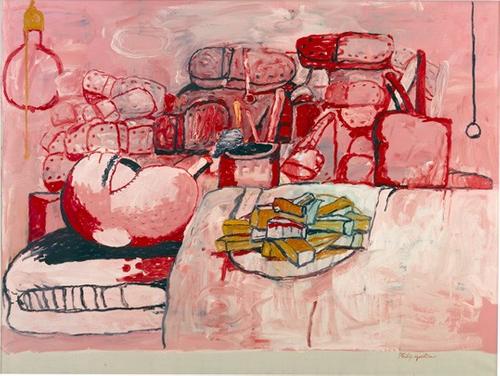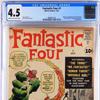The Very Timely Philip Guston Retrospective Will Be Postponed For 4 Years
- September 27, 2020 18:39

A much-anticipated exhibition of Philip Guston — the 20th-century American artist who boldly took on subjects from racism to fascism, along with abstraction and American identity themes — has been delayed for four years. Now falling on the run-up to the 2024 U.S. presidential election, the show was supposed to open in Washington, D.C., this summer.
The National Gallery of Art in D.C., the Museum of Fine Arts, Houston, the Museum of Fine Arts, Boston, and the Tate in London announced that their Philip Guston Now touring exhibition will be held later due to the need to "reframe programming" and "bring in additional perspectives and voices."
In a joint statement, the four institutions said, "We are postponing the exhibition until a time at which we think that the powerful message of social and racial justice that is at the center of Philip Guston's work can be more clearly interpreted."
"We recognize that the world we live in is very different from the one in which we first began to collaborate on this project five years ago. The racial justice movement that started in the U.S. and radiated to countries around the world, in addition to challenges of a global health crisis, have led us to pause."
Critics have argued that the Guston show was needed precisely at this moment. In response to the museums' decision, an online show of Guston's work was created by Collecteurs, which posted on Instagram: "We published 'Philip Guston: The Danger is in Looking Away,' an extensive selection of 20 Guston works that focus on systemic racism and white supremacy.... As a digital museum benefiting the public, we believe that it is our responsibility to place these timely works in the view of the public due to the second postponement of the Philip Guston retrospective by four major museums."
{{insta https://www.instagram.com/p/CFkem6CpDQf/}}
The artist's daughter Musa Mayer weighed in, saying, “Half a century ago, my father made a body of work that shocked the art world. Not only had he violated the canon of what a noted abstract artist should be painting at a time of particularly doctrinaire art criticism, but he dared to hold up a mirror to white America, exposing the banality of evil and the systemic racism we are still struggling to confront today.
“In these paintings, cartoonish hooded figures evoke the Ku Klux Klan. They plan, they plot, they ride around in cars smoking cigars. We never see their acts of hatred. We never know what is in their minds. But it is clear that they are us. Our denial, our concealment.”





















![Ernest Childers (Muscogee [Creek]) receives the Congressional Medal of Honor from Lieutenant General Jacob L. Devers (left). 5th Army headquarters, April 8, 1944. Ernest Childers (Muscogee [Creek]) receives the Congressional Medal of Honor from Lieutenant General Jacob L. Devers (left). 5th Army headquarters, April 8, 1944.](/images/c/64/34/Jan24_smithsonian1100x100_n.jpg)